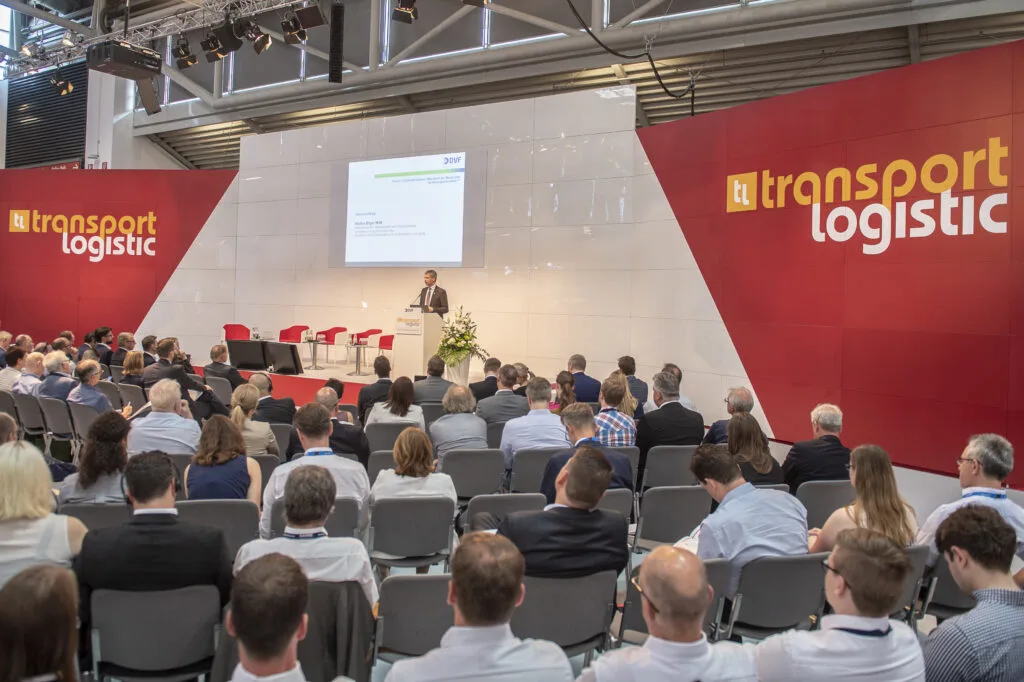Digitalization has emerged as a cornerstone of modern, responsible operations across all industries, and logistics is no exception. According to a McKinsey & Company report , fewer than 40% of companies worldwide have comprehensively digitized their processes, revealing a considerable opportunity for those willing to embrace new technologies. Companies like Girteka, treat digitalization not only as a means to optimize and accelerate services but also as a foundation for a commitment to responsible logistics. By integrating solutions such as Electronic Data Interchange (EDI) in practice, Girteka is bringing additional value to typical services of road transport.
What is EDI and why it matters
EDI (Electronic Data Interchange) is the structured transmission of data between organizations electronically, replacing paper documents such as invoices, orders, and shipment notifications. It ensures a standardized format – minimizing manual entry, reducing the risk of errors, and streamlining processes.
Key benefits of integrating EDI into operations are:
• Efficiency gains: Automating data transfer prevents time-consuming manual tasks and lowers the chance of human error.
• Scalability: EDI is well-suited to large-scale, repeated data transfers, as it is within the logistics.
• Transparency: EDI offers improved visibility, a critical factor in logistics where minute-by-minute tracking can significantly impact decisions.
Despite recent advancement in AI and API (Application Programming Interfaces) solutions, EDI still is the fundamental solutions for companies to cooperate effectively and efficiently.
“We can see that more and more customers are looking for automation solutions and simplifying their operational processes while working with carriers. Summarizing recent period, we grew 10 times on the usage of EDI from 2020,” explains Lina Lipske (pictured), EDI Solutions Team Lead, at Girteka.
According to Metastat , the global digital market, including solutions like EDI, is expected to expand substantially over the coming years, with CARG at level of 9.2%, largely driven by the manufacturing and retail sectors.
EDI in the logistics sector
Within Europe, EDI has long been an integral element of logistics, particularly among high-volume shippers and retailers who value dependable, cost-effective communication. From a sustainability perspective, EDI also aligns with the growing emphasis on responsible logistics – replacing paper-based processes, minimizing administrative overhead, and allowing for more accurate load planning to reduce emissions.
Benefits of EDI for Customers and Partners
1. Efficiency and Accuracy
By automating data exchange, EDI solutions drastically reduce the potential for errors. A Deloitte study on digital transformation found that organizations integrating end-to-end digital workflows can reduce manual errors by up to 80%.
2. Faster Processing
Real-time data transmissions allow for immediate processing of orders, invoices, and updates. In logistics, timely information can be the difference between an on-schedule delivery and costly delays.
3. Cost Reduction
Eliminating paper, postage, and manual labor decreases operational expenses. This also aligns with Girteka’s broader drive for environmental responsibility.
4. Strengthened Relationships
Faster responses and transparent communication bolster client trust and loyalty. Gartner research points out that businesses with robust digital collaboration see higher client retention rates.
5. Sustainability
Reducing reliance on paper and cutting down on errors supports Girteka’s mission of minimizing waste and emissions. This fosters a more responsible and environment-friendly logistics ecosystem.
Growth in EDI integration
Girteka has consistently focused on innovative and responsible digital solutions to optimize efficiency and reduce emissions. “Over the past year, we saved more than 32,000 hours of manual order updates, translating directly into both lower administrative costs and a smaller environmental footprint. Today, over 3,500 customers leverage our digital capabilities for real-time visibility, and an impressive 40% of all orders are processed through digital channels – up from just 4% in 2020. This is an outstanding results taking into account average in the sector,” -summarizes Lipske.
The Future of Data Exchange
Despite the rapid adoption of real-time data exchange methods, EDI remains a mainstay in logistics due to its reliability and compatibility with legacy systems. At the same time, APIs continue to gain traction among businesses that require instant data updates and advanced tracking capabilities. According to the World Economic Forum, fully digitizing supply chains could unlock billions of dollars in global value each year, suggesting that both traditional and emerging solutions play a valuable role.

Girteka, recognized for its progress in digitalizing logistics, is implementing the following initiatives to further support and expand customers’ operational requirements:
• AI/ML-Driven Document Reading: By converting Excel files, PDFs, and email text into structured data, this planned innovation aims to reduce manual tasks for customers and integrate information seamlessly into their own systems or platforms. This not only saves time but also minimizes the risk of errors, ultimately improving overall supply chain efficiency.
• Flexible Integration Options: Supporting multiple data exchange formats and methods allows partner businesses to avoid extensive system overhauls. This flexibility is intended to simplify onboarding for customers, enabling them to choose the most suitable integration method for their processes and technological setup.
• Customer Portal Self-Service: Girteka’s portal initiative seeks to offer greater visibility and autonomy for customers. By reducing reliance on manual communications, portals can lower the chance of errors and provide on-demand access to shipment statuses, documentation, and other critical information, enhancing transparency.
By combining established technologies like EDI with real-time APIs and advanced analytics, digital solutions can be designed to bring simplicity, error reduction, speed, and accuracy. As a result, all stakeholders can collaborate more effectively, co-creating optimized supply chain solutions that benefit the entire logistics ecosystem.
Charting the Path for Responsible Digital Logistics
“By harnessing EDI and APIs – alongside emerging technologies such as AI, machine learning, and customer self-service portals – a logistics ecosystem characterized by efficiency, transparency, and reduced environmental impact becomes increasingly attainable,” says Stasys Mikelionis, Chief Enterprise Architect at Girteka.
Digital tools in logistics, such as Electronic Data Interchange (EDI) and APIs, have already transformed operations by improving efficiency, accuracy, and transparency. Data shows that automation through these solutions significantly reduces manual errors and processing times, offering clear benefits for both large shippers and smaller partners.
similar news
Costa Coffee Selects Global EDI













